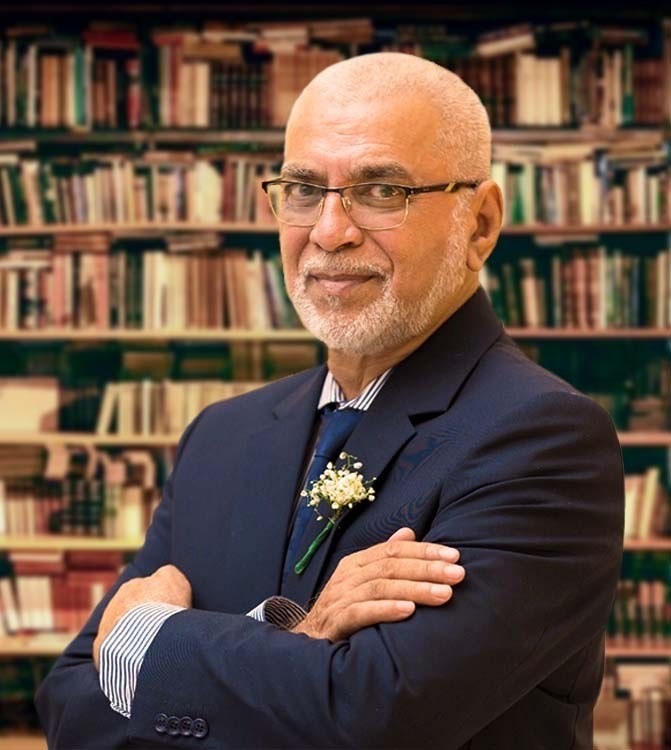It is obligatory for all Muslims to attend congregational prayers on Fridays in a mosque. Usually, in many mosques, before the Friday prayers, the Imaam delivers the Friday Sermon (Khutbah) in Arabic and in two parts. However, in few mosques, both parts are done in the local Kreol Morisien. Before the Arabic Sermon, in most mosques, certain Imaam addresses the gathering in the local language. Such an efficient and potent vehicle of mass communication is unique to Islam. The words spoken from the pulpit have a considerable impact on the gathering. No idle talk is permissible during the Sermon and thus we have a captive audience listening in full silence. The Friday Sermon basically serves the purpose of fortifying the faith, motivating the gathering to fulfill the obligation of various types of worship, and inculcating the importance of good behaviour and good morals. These three conceptual elements of faith, worship, and morality form the core of Friday Sermon.
The common complaint of many intellectuals is that we are not making the best use of this Sermon which is delivered in the local language. Many writers have frequently expressed their opinion, stating that the Friday sermons by and large leave much to be desired. In many community gatherings and meetings, it is pointed out that the community is not deriving much benefit commensurate with its potential. It is generally perceived that the Friday Sermon is high in decibels but low in content. Most Imaam think that one becomes a good orator by speaking at the top of their voice. Some repeat the words using different synonyms. Most of them deviate from the main topic and drift into unconnected issues, thus losing focus.
Another common observation is that in certain mosques, the Imaam prolongs the Sermon and consequently the Salaat is delayed. Many office-goers and employees thus face many inconveniences, whereas, in others, the time for sermon and Salaat are respected.
It is commonly put forth that the Sermon should be relevant to the times and should deal with current affairs. A topic that is generally left out in Friday Sermons is the subject of the rights of women and the potential of the youth engagement. Recently, I was happily surprised when an Imaam spoke at length about the rights of women. He said all the right things that women should not be overburdened with work, they should not be subject to injustice, ill-treatment, and that they are entitled to the inheritance rights as allowed for them. But the speaker spoiled his entire message by concluding that the women were created from the left rib of man and hence, like the rib, they are crooked and cannot be straightened at all. He went on to highlight all the negative qualities of women, thus exhibiting a gender bias. Gender disparity is rarely addressed even though many noble ladies during Prophet Muhammad’s (saw) time played outstanding roles that have become part of history.
Some speakers rake up School of thoughts differences in the Sermon, which divides the community and causes antagonism between people having different viewpoints about certain religious issues which are peripheral issues and not the core issues of Islam. Similarly, the Speakers should avoid to speak in favour or against a political party or a politician since there are both supporters and opposers of every political party or political leader in the gathering.
The Ummah must be instructed and encouraged on how to be good and responsible citizens of the country and that they should display good manners and conduct. Besides, breakdown of marriages on flimsy grounds, extravagant expenditure in marriages and functions, rising cases of drug addiction among youth, crisis of loss of moral and human values and addiction to mobiles need to be talked about. According to some, socio-economic issues, educational matters, and even political issues that have a huge bearing on the quality of life of Muslims in a democracy should also be discussed so as to guide the community to the path of welfare and progress.
Al Hassan Al-Basri was asked why some orators could capture the attention of the audience while others couldn’t influence them, and he said, “If the words come from the heart they reach for the hearts, but if they come from the tongue, they only manage to reach the ears.”
When I broached this subject of improving the quality of Friday Sermons with a reputed Islamic Scholar, he told me that many people enter the mosque after the Friday Sermon is delivered and leave the mosque immediately after the Salaah is over, without even sitting for the Duaas. In this scenario, how is it possible to reach out to them? A majority of those who hear the Sermon, forget what they heard once they step out of the mosque. A handful of those who remember what they heard, fail to adopt the same in their lives.
Some intellectuals have made this a routine to blame the Imaams and Ulemas for every ill and every problem faced by the community. The Islamic Scholars are specialists in religious matters, and they speak on the subject known to them. The educational and financial background of few Imaams/Ulema and their exposure to the socio-political dynamics of the society has also to be reckoned with and it is a tall order to expect a high level of discourse from them on current affairs. Asking them to speak on political issues could backfire since they are sensitive issues and have many ramifications.
There are many forums to discuss socio-economic, educational, and political issues. Seminars, workshops, and meetings are arranged by many organizations and NGOs where all such matters are taken up. We get to know about Islam, the Quran, and the Ahadith from the Friday Sermons and talks. A vast majority of Muslims do not read books on religion. Whatever information they receive on religious matters and religious issues is from the Friday Sermons and other talks. Where else will they hear about the event of Mehraj, the splitting of the moon, true stories about earlier prophets, and about the life of our Prophet (saw)? Every year a Muslim hears around firty-two Friday Sermons, and he benefits from the religious discourses. Some of the Friday Sermons may appear very ordinary and repetitive to older people, but there are always youngsters who will be hearing the same for the first time in their lives. Many intellectuals recommend that the Imaams should read a Sermon previously prepared by a learned person. Delivering a Friday Sermon by reading from a book of Sermons is not a good option since it does not generate much interest among the listeners and sounds very academic. There will be no emotional connection between the speaker and the audience.
The way forward could be to persuade the gathering to attend Jummah earlier or to remain in the mosque for some time after the Friday Sunnah prayers are over. Intellectuals, activists, educationists, NGO’s, and officers could then speak for about fifteen minutes on current burning issues and guide the audience to the right path in worldly matters. The Friday Sermon and the prayers could be re-scheduled to start fifteen minutes earlier so that there is no further extension of time and no inconvenience caused to the Friday gathering.
Training programs could be arranged for the Preachers by senior Ulemas to impart important tips for delivering a more effective and purposeful Friday Sermon, which can go a long way in streamlining the content and rectifying the shortcomings, if any.
By Bashir Nuckchady





![[Poetry corner] Mystical poem: The greatness of Allah](https://sundaytimesmauritius.com/wp-content/uploads/2024/06/Cassam-Tupsy2-218x150.jpg)



![[URGENT] Le PMSD convoque son comité exécutif cet après-midi](https://sundaytimesmauritius.com/wp-content/uploads/2024/07/x-150x150.png)

![[Super League 2024] L’équipe Plaine Magnien Star Club remporte la régionale de Grand Port](https://sundaytimesmauritius.com/wp-content/uploads/2024/07/449598069_841745630808469_1098766535885890331_n-150x150.jpg)

![[URGENT] Le PMSD convoque son comité exécutif cet après-midi](https://sundaytimesmauritius.com/wp-content/uploads/2024/07/x-100x70.png)

![[Super League 2024] L’équipe Plaine Magnien Star Club remporte la régionale de Grand Port](https://sundaytimesmauritius.com/wp-content/uploads/2024/07/449598069_841745630808469_1098766535885890331_n-100x70.jpg)